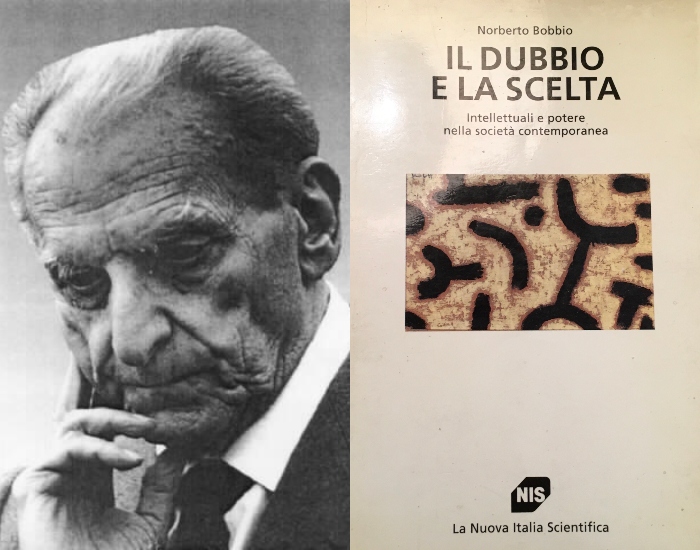The doubt and the choice of Norberto Bobbio

The Notepad of Michael the Great
According to Roland Barthes (who coined it), the term "neneism" consists in establishing two opposites and weighing them against each other in order to reject both: I want neither this nor that. It is a magical procedure, the eminent French semiologist pointed out, through which one equates how embarrassing it is to choose to get rid of a reality that does not correspond to one's prejudices (“Miti d'oggi”, Einaudi, 1994). From yesterday's “neither with the State nor with the BR” to the “neither with NATO nor with Putin” today, our most recent history is full of neneisms. Their followers, pale stunt doubles of Romain Rolland author, shortly after the start of the Great War, of "Au-dessus de la mêlée" ("Above the fray"), do not have the courage to assume the first responsibility that Norberto Bobbio assigned to intellectuals: that of “preventing the monopoly of force from becoming the monopoly of truth” (“The doubt and the choice”, La Nuova Italia Scientifica, 1993).
On the contrary, the Canfora, Di Cesare, Orsini , Rovelli (just to name a few) preach "neither here nor there", they believe that their task is not to get their hands dirty, to look at dogs with aristocratic disdain who fight; and perhaps to continue to speculate, predicting misfortunes, on the outcome of the "special military operation". They are those scholars who, professing to be neutral, believe "to float on the waves – added Bobbio – like the lords of the storm, and are rejected, without realizing it, in an uninhabited island". But in the present time, where the supreme values of liberal democracy are at stake, there is no room for third-party (read: anti-Western) positions. You have to choose which side to be on: either here or there.
To take up a metaphor dear to Julien Benda, between Michelangelo who accuses Leonardo of his indifference to the misfortunes of Florence, and Leonardo who replies that the study of beauty occupies his whole heart, the self-styled partisans of peace should have no doubts in siding with the sculptor of the Pietà. There is a verse from the "Bellum Civile" of the Latin poet Lucano which reads: "Victrix causa deis placuit / Sed victa Catoni". Its meaning is: Caesar's cause won because it was supported by the gods, while Cato the Uticense lost for having espoused the cause of republican freedom. Does this mean that the vanquished are always wrong just because they are vanquished? But can't today's winner be tomorrow's winner?
*The paper
This is a machine translation from Italian language of a post published on Start Magazine at the URL https://www.startmag.it/mondo/il-dubbio-e-la-scelta-di-norberto-bobbio/ on Sat, 23 Apr 2022 05:42:02 +0000.
